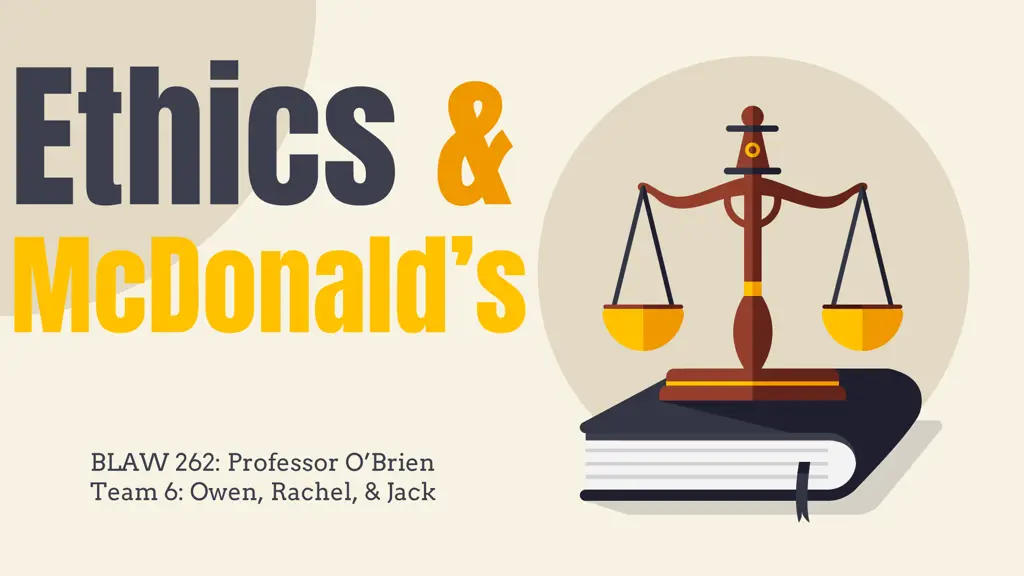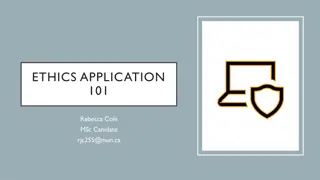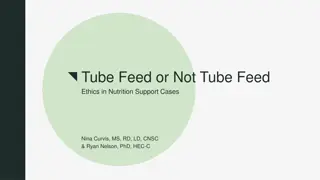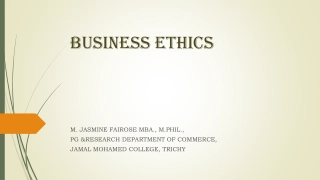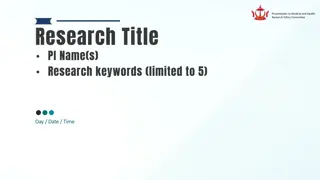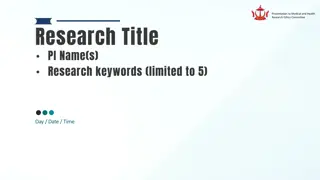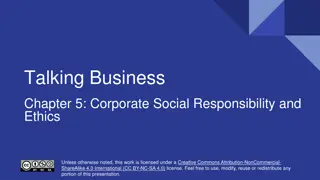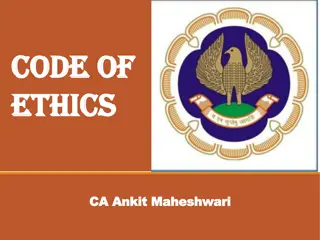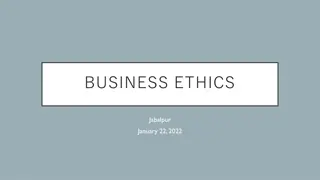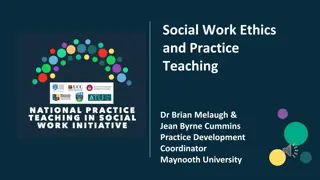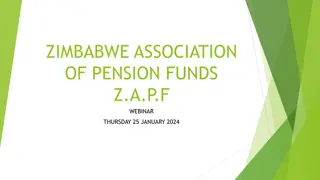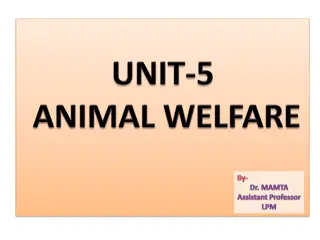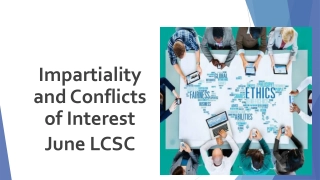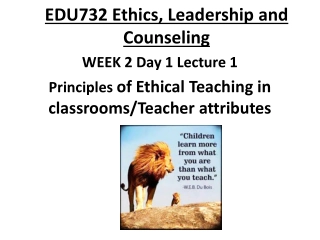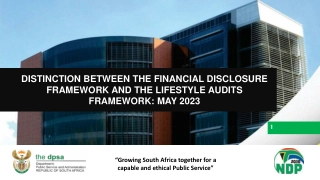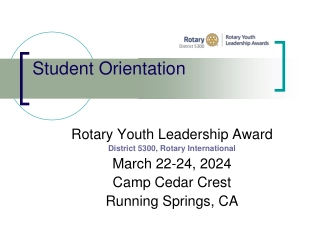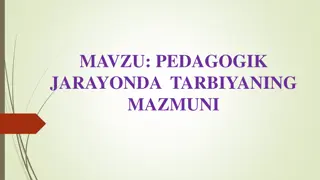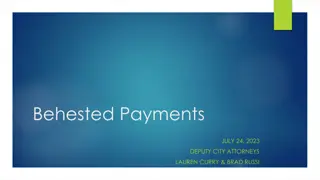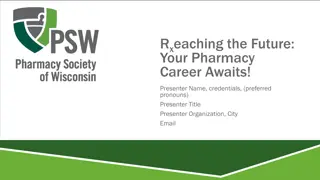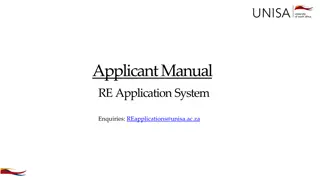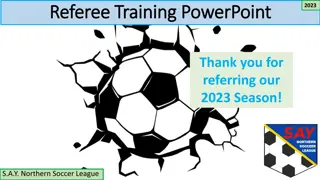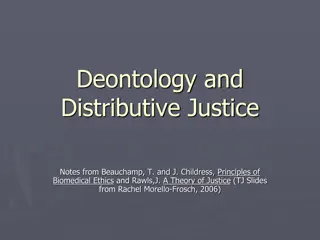Ethics & McDonald’s
Discover the ethical journey of McDonald's, from its founding to today, exploring ethics programs and practices within the iconic brand.
Download Presentation
Please find below an Image/Link to download the presentation.
The content on the website is provided AS IS for your information and personal use only. It may not be sold, licensed, or shared on other websites without obtaining consent from the author. Download presentation by click this link. If you encounter any issues during the download, it is possible that the publisher has removed the file from their server.
Presentation Transcript
Ethics & McDonald s BLAW 262: Professor O Brien Team 6: Owen, Rachel, & Jack
Phase I: Introduction of the Business Organization
The Ethical History of McDonalds 1940 The McDonalds Brothers founded the first ever McDonald s 1961 Ray Kroc strong arms the brothers into a buyout 1962 Ray Kroc hires a team of lawyers to justify his refusal to pay the McDonald s brothers Today The McDonald family has still never seen a penny
Phase II: Review Business Organization, Ethics Programs, and Brand
Phase 2 - Ethics Programs: Practices and Policies Hundreds of policies, but most are legal protection, and for the bottom of the leadership hierarchy. Policy is to follow the law, with some relevant additions. Standout Policies: Product Safety Whistleblower Protection Employment Practices Acting in Best Interests Conflicts of Interest Corporate and Social Responsibility Fair Competition and Antitrust
Phase 2 - Ethics Programs: The Training Regime Aimed at producing effective leaders from top-down within the organization s structure. Typically start with regional personnel not senior leadership. Training courses for prospective branch managers offered abundantly. Training the managers Points of emphasis: Effective Task Delegation Maintaining Effective Hierarchical Communication Establish Protections for Confidential Information Data Privacy (External to Organization) for Employees & Trade Secrets
Phase 2 - Ethics Programs: The Rules and Regulations Rules and regulations aimed to sponsor moral operation of employees: Uphold the principles of the Mcdonald's Corporation. Maintain high standards for work and business conduct. Know/utilize the Business Integrity phone line. Fulfill the rigorous expectations for safety and quality. Fulfill the protection of trade secrets. Know reporting retaliation protections. Comprehend human right provisions.
Phase 2 - Ethics Programs: Stakeholder Matrix Key Stakeholder Importanc e Needs, Interests, Desires Role Influence Ways to Manage Expectations Want to increase profits and build infrastructure for long term growth. Regular meetings with performance updates and forecasts for the company. Board of Directors Ownership Significant High Want to front fewer costs. General transparency. Management Franchisee Some Low Want return on investment. Similar to Board of Directors: Regular releases and meetings Branding updates. Investors Ownership Significant High Want stability in payment and workload. Consistent onboarding and HR services. Employees Benefactor Little Low
Phase 2 - Ethics Programs: Stakeholder Matrix Key Stakeholder Importanc e Needs, Interests, Desires Role Influence Ways to Manage Expectations Want access to cheap fast-food which aligns with current societal values. Advertising and Branding campaigns. Sponsored social and charity events can also help to manage expectations. Customers/Consumers Benefactor None High Want stability and flexibility in contracts with McDonald s. Well negotiated contracts and representatives. Suppliers Benefactor Significant Medium Want to protect the wellbeing of the communities where McDonald s is present, and ensure lawful behavior. Press Releases and Lobbyists. Governing Bodies Oversight Significant Medium
Phase 2 - Ethics Programs: Successes and Failures Successes: Consistency Brand Saturation and Penetration Automation of Process/Technologies Approach of Modernizing Tradition: Breakfast Menu Challenges/Failures: Wasteful Practices Environmental Considerations General Consideration of Health Impact
Phase III: Analysis, Substantive Conclusions, and Recommendations
What About Today? An interview with Chris Kempczinksi, the current CEO of McDonald s
Ethical Issue #1 - Corporate Bullying The McDonald s Corporation Franchises it s restaurants Franchisees must follow a strict contract That contract requires them to use outdated machinery Franchisees are still responsible for maintenance costs! McDonalds pays less for new restaurants Franchisees are cheated out of potential profits
It s a huge money maker to have a customer that s unable to make fundamental changes to their own equipment. JEREMY O SULLIVAN
Stakeholders & Consequences Stakeholder Consequences Higher Maintenance Costs, Damaged Reputation Franchisees Increased stress, Lack of Safety Employees Lack of Variety, Lack of Reliability Consumers
03. Justice 01. Utility Is it consistent with the canons of justice? Does it optimize the satisfaction of all constituents? This practice is not consistent with the canons of Fair Compensation and Fair Blame This practice does not optimize satisfaction. Rights Caring 02. 04. Does it respect the rights and duties of the individuals involved? Is it consistent with my responsibility to care? This practice does not respect the franchisers right to repair, and denies employees a right to workplace safety This practice is not consistent with McDonald s right to care about their franchisees
Recommendation Open supplier contracts for bid! The resulting competition could return even more than the money saved on the outdated machinery.
Ethical Issue #2 - Unethical Working Conditions History of discrimination, sexual harassment, sexual misconduct, and low wages. Managers abuse of power Known for ignoring sexual assault allegations, therefore increasing the potential victim count. 2019- Anonymous hotline ineffective. Reprimanded for disturbing the workplace
Company: The McDonalds Corporation and Rice Enterprises Ethical Issue: Unethical Working Conditions Stakeholders Impacted: Board of Directors, investors, management, governing bodies, and employees Societal Consequence: Negatively influences other organizations to tolerating unethical behavior and creates an unsafe work environment as the norm. Recommendations: Background checks, zero-tolerance policy, increase security cameras, and increase pay
03. Justice 01. Utility Does it optimize the satisfaction of all constituents? Is it consistent with the canons of justice? No, the McDonald s Corporation does not optimize the satisfaction of all constituents. Rights No, McDonald s Corporation is not consistent with the canons of justice. Caring 02. 04. Does it respect the rights and duties of the individuals involved? Is it consistent with my responsibility to care? No, the McDonald s Corporation does not respect the rights and duties of the individuals involved. The McDonald s Corporation is not consistent with their responsibility to care.
Ethical Issue #3 - Data and Technology Practices Deceptive data collection strategies and policies. Buying habits and identifying information. Geolocation data. Use of targeted advertising and AI to market to consumer populations. While not the implementer, use of services is still questionable. Overall questionable processes regarding customer wellbeing. Putting bottom line profit over consumer stakeholders.
Company: The McDonalds Corporation and Rice Enterprises Ethical Issue: Data and Technology Practices Stakeholders Impacted: Board of Directors, investors, management, employees, and customer populations. Societal Consequence: Advertising: Primarily long-term in scope and is most dangerous to influential population groups such as children or teenagers. Recommendations: Establish more appropriate policies regarding data transparency to customers. Lead by example and allow granular data control. Possible rewards systems for forthcoming data access.
03. Justice 01. Utility Is it consistent with the canons of justice? Does it optimize the satisfaction of all constituents? No, McDonald s Corporation is not consistent with the canons of justice with respect to the fair administration of rules. Caring No, the McDonald s Corporation only optimize the satisfaction of beneficiaries to increased profit. Rights 02. 04. Is it consistent with my responsibility to care? Does it respect the rights and duties of the individuals involved? The McDonald s Corporation s targeted advertising and data collection is dismissive of the notion of caring about the consumers. No, the McDonald s Corporation is impacting the implied rights of data privacy .
Substantive Conclusions: Part 1 What portions of their ethical behaviors, standards, policies and practices do you support? Innovation Ordering kiosks, order ahead Automation Efficiency General standards/policies are as expected but need to be more strict
Substantive Conclusions: Part 2 Is this a company you would like to work for and be affiliated? We do not support an organization that does not ensure a safe work environment with the absence of discrimination, sexual harassment, and low wages. No, we would not like to work for or be affiliated with the McDonald s Corporation.
Substantive Conclusions: Part 3 What are your overall recommendations? Prioritize the well-being of their employees as critical stakeholders. Establish a zero-tolerance policy. Decrease room for ambiguity in the code of conduct.
Thank you Any Questions?
